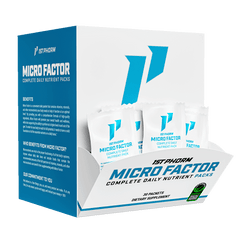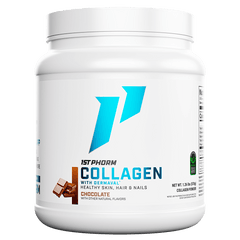We’ve all been warned about fat in our diet, but did you know there are different types of fat?
Having too much fat in your diet can take a toll on your health because they are very high in calories.
This can cause unhealthy weight gain if calories aren’t controlled, but that doesn't mean to cut out all fats just because they are higher in calories.
Taking care of your body is all about balance. Balanced exercise … balanced eating … balanced sleep ... you get the idea.
The same thing is true for dietary fats. Having a balanced and intentional amount of the right fats can make a huge difference in your health…
As you read through this article and see "bad fats", this means these fats are "less essential" because your body doesn't need them, and they should be consumed in moderation.
What Are The Different Kinds of Fat?
All fats are high in energy, and our bodies use them for both internal and external functions.
Fats help to build and repair cells and tissue. In addition to that, they also help us take care of our daily activities outside of the body. Energy from the fats we eat, both good and bad, affect our body’s ability to function.
So, what are the different kinds of fat? The two types you need to focus on most for a balanced diet are saturated and unsaturated fats.
Saturated Fats
Both saturated and unsaturated fats are found in the food we eat. The difference between them comes down to their chemical structure and how they affect our bodies.
Fats are made up of carbon, hydrogen, and oxygen, but saturated fats are “saturated” with hydrogen atoms.
This makes the molecular structure of saturated fats very stable and difficult to break down, even for the body.
Their stability is why saturated fats are usually solid at room temperature. These are fats like a cube of butter.
Unsaturated Fats
Unsaturated fats, in comparison, have double or triple bonds of carbon, meaning they aren’t as saturated with hydrogen. This makes them weaker and easier to break down.
Unsaturated fats are usually a liquid at room temperature, like olive oil.
There are also 3 subcategories: trans fats, polyunsaturated fats, and monounsaturated fats. The unsaturated fats vary based on the type of chemical bond they have, and some are better than others.
What Fats Are Good For You?
Unsaturated fats are considered “good” types of fats. Because they break down easier and may help with lowering bad cholesterol.
Side note, even though trans fats are a part of the unsaturated fats category, they can be one of the most damaging ... especially when they’re artificially made.
Stick with monounsaturated fats and polyunsaturated fats most of the time.
The most beneficial type of fat to get in your diet is actually a polyunsaturated fat. You may have heard of "Omega-3’s." I’ll go a little more in-depth into their benefits in the next section...
What Is The Role Of Good Fats In Your Diet?
Healthy fats aren’t optional, because your body can't produce these essential fatty acids on its own. This is why good fats should be included in your diet.
Good fats give us energy and help absorb important vitamins and minerals. They also play a vital role in blood clotting, regulating inflammation, hormones, and muscle movement.
Omega-3 fats, in specific, are crucial for controlling inflammation in the body. They also can help to prevent heart disease, certain cancers, can help with weight loss, and many other things too!
You still don’t need too many good fats in your diet, but the amount you do need is an important part of your health!
Eat These Foods To Add Good Fats To Your Diet
You’ll find a lot of good fats in foods like vegetables, nuts, seeds, and fish.
Foods high in monounsaturated fats (good fats) include:
• Olive oil
• Peanut oil
• Canola oil
• Sunflower oil
• Nuts (almonds, peanuts)
• Avocados
• Pumpkin and sesame seeds
Foods high in polyunsaturated fats include:
• Fatty fish (salmon, mackerel, sardines)
• Flaxseeds
• Walnuts
• Canola oil
Foods high in Omega 3 fats include:
• Fatty fish (salmon, mackerel, sardines)
• Avocado
• Walnuts
• Flax seeds
• Chia Seeds
What Fats Are “Bad” For You?
Putting a blanket statement on any type of food saying it’s outright bad for you would be misleading. With that being said, there are some fats that you need less of and want to limit more than others.
Saturated fats aren’t as bad for us as they were once believed to be, but we don’t need as much of them as we do unsaturated fats. Naturally derived saturated fats like coconut oil, palm oil, and those found in meat do have benefits to your health.
Saturated fats are actually great for brain function. They help increase HDL, or “good” cholesterol, and help with hormone regulation as well.
However, saturated fat intake also increases LDL, or “bad” cholesterol. Although, the increase in LDL doesn’t mean it increases the risk of cardiovascular disease ... as it was once believed to (1).
Artificial trans fats, however, are best to cut out completely if possible. They are man-made fats created by hydrogenating an unsaturated fat to turn it into a saturated fat.
Artificial trans fats have much less nutritional value than other fats. They have been shown to increase inflammation throughout the body, and negatively impact cholesterol.
Both of these effects from artificial trans fats can really take a toll on your overall health.
Natural trans fats like conjugated linoleic acid (CLA) which is found in some meats are actually good for us and can help with fat loss, too. Depending on whether it is naturally occurring or man-made determines whether it has health benefits as a trans fat.
The most important thing is to moderate your overall calorie intake. The key is to make sure not to get in so many fats in your day that it causes you to overeat your calories in general.
But either way, it’s best to limit artificial trans fats as much as possible…
And it’s helpful to focus more on unsaturated fats when you can ... because we need them more than other types of fats.
Also, many of the foods we find in our diet are more abundant in saturated fats. This makes them much easier to get adequate intake of them.
What Is The Role Of “Bad” Fats In Your Diet?
Having too many fats in general can cause an increase in your calories over the amount that you are burning. This surplus of calories is likely to get stored as body fat.
Having too much body fat can lead to an increased risk of many different diseases ... such as diabetes and cardiovascular disease.
But, the one type of fat that can truly impact your health in a negative way, as I stated earlier, is artificial trans fat.
Artificial trans fats truly have no role or benefit to the human body. Ideally, they would be completely left out of a diet, if possible.
What Are Sources Of Saturated Fats?
Most saturated fats come from animal sources, like meat and dairy products. Again, you don’t need to cut these out entirely, but you don’t need as much saturated fat as you do unsaturated fat.
So there’s no need to go out of your way to focus on getting more fats from these sources.
Foods high in saturated fats include:
• Fatty cuts of meat
• Meat products
• Butter and lard
• Cheese
• Some chocolate
• Cream (including sour cream)
• Palm oil
• Coconut oil
Avoid These Foods To Decrease Bad Artificial Trans Fats in Your Diet
Foods high in trans fats typically include:
• Cakes
• Cookies
• Pies
• Microwave popcorn
• Frozen pizza
• Refrigerated dough, such as biscuits and rolls
• Fried foods (french fries, doughnuts, etc)
• Shortening
1st Phorm Makes Food Simple
A healthy lifestyle is all about making small adjustments. One of these could be switching up the kind of fats in your diet.
Still, it can be overwhelming to figure out what kind of meals to make, get the right amount of nutrients, etc.
If you want to simplify your health, start using the 1st Phorm App. Our app helps you keep track of your nutrition, workouts, and progress.
Plus, you can get one-on-one help from our experts when you have questions!
Download the 1st Phorm app today!
References:
(1) Gershuni VM. Saturated Fat: Part of a Healthy Diet. Curr Nutr Rep. 2018 Sep;7(3):85-96. doi: 10.1007/s13668-018-0238-x. PMID: 30084105.
ABOUT THE AUTHOR

















